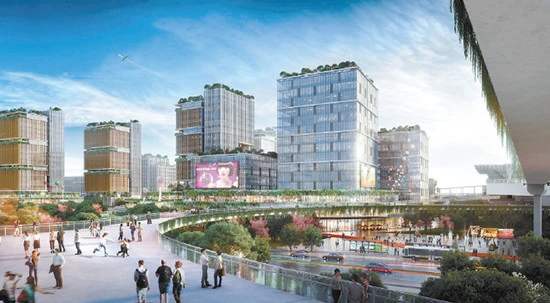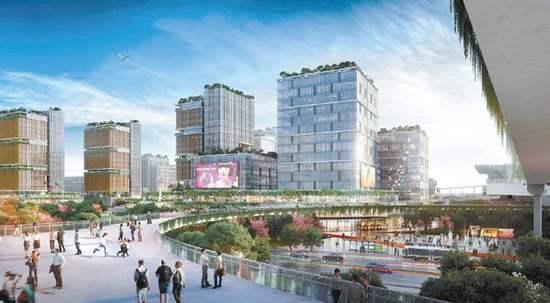
BEIJING, Dec. 15 (Xinhua) -- The Sino-Japanese industrial park, approved by China's National Development and Reform Commission, will kick off construction in Daxing District of Beijing, capital of China, during the 14th Five-Year Plan period(2021-2025), reported by Beijing Daily Wednesday.
As a demonstration zone for the development of international scientific and technological innovation and industrial cooperation, the industrial park will focus on life and health, cutting-edge intelligent manufacturing and future transportation, with biochemical engineering, materials science, modern technology, artificial intelligence, and energy applications as research chains, forming an industrial system supported by modern service industry.
With a total planned land area of 9.57 square kilometers, the industrial park will cultivate innovative industries, life services, and information release service by integrating Japan's advantages in high-end industries and manufacturing with China's huge market, complete industrial system and business environment.
Taking advantage of Japan's world-leading hydrogen energy industry and Daxing District's space resources, the industrial park will first make efforts in the field of hydrogen energy applications. A demonstration station with the largest daily hydrogen refueling capacity in the world and a hydrogen energy technology experience exhibition hall will be built in the park.
In addition, Daxing District will also cooperate with scientific research institutions to build hydrogen energy innovation center. With the help of application scenarios such as Beijing Daxing International Airport and JD's logistics base, the park will explore the commercial application of fuel cell vehicles in airport buses, urban logistics and other fields, and actively promote the application of hydrogen fuel cell vehicles in public service.
Daxing District will give full play to the role of Daxing Airport and use the Sino-Japanese industrial park as a carrier platform to strengthen the introduction of international talents, capital, projects, technology and other production factors, said Zhang Jifeng, executive vice president of the National Association of Japan Economy.
(Edited by Gao Jingyan with Xinhua Silk Road, gaojingyan@xinhua.org)




 A single purchase
A single purchase









